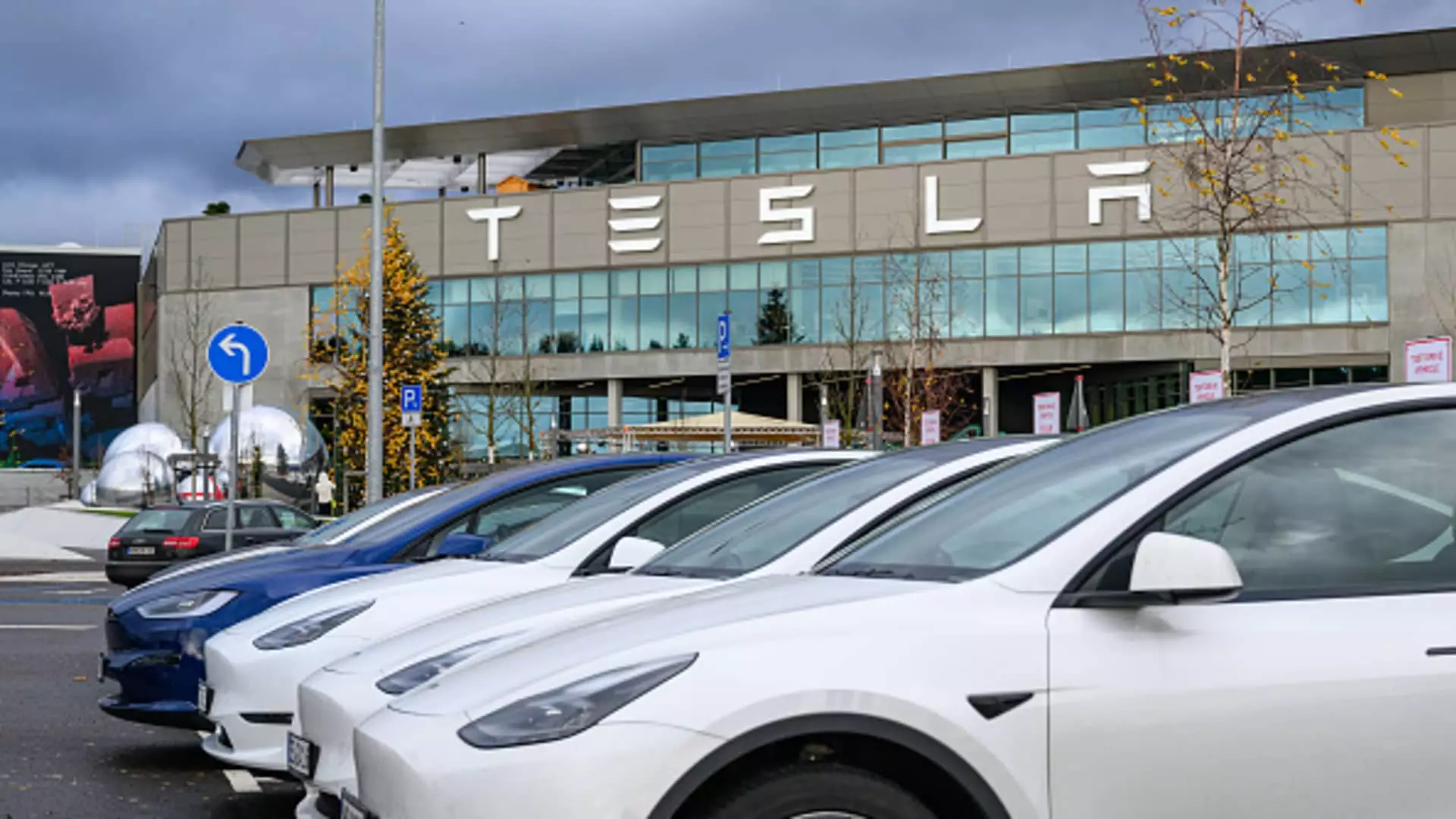Tesla Inc. has become synonymous with the electric vehicle (EV) revolution, consistently capturing the spotlight in the financial and automotive sectors alike. However, the company’s stock performance recently has been far from stable. As investors grapple with market fluctuations and the implications of political dynamics, Tesla’s stock has become a subject of intense scrutiny and speculation. This article aims to dissect the factors influencing Tesla’s shares, including political ties, sales performance, and operational challenges that define its unique market standing.
Following the controversial election of Donald Trump, Tesla experienced a notable surge in stock prices, attributed largely to CEO Elon Musk’s close association with the then-president-elect. Investors were keen to latch onto the potential benefits this relationship might yield, enhancing their confidence in Tesla as a key player in the upcoming EV market. Fast forward to the present, shares recently encountered a dramatic downturn—evidenced by an unsettling 8% drop within a single trading day—highlighting the inherent volatility that can result from shifting political landscapes and investor sentiment.
Tesla’s cumulated stock performance since the electoral results underscore this roller coaster ride. Despite recent declines, a 72% increase since November 5 demonstrates the lingering optimism that still surrounds the company. The volatility can often be attributed to the underlying uncertainty that accompanies Tesla’s market position and product deliveries, especially in the shadow of maturing competition in the EV sector.
In an industry where sales figures can dramatically influence stock value, recent announcements of a staggering 40.9% decrease in Tesla’s car sales in Europe have exacerbated concerns among investors. This decline starkly contrasts with an overall dip of just 9.5% in battery electric vehicle sales across the European market. Such figures raise questions about Tesla’s competitive edge and its ability to maintain a leading position amid increasing competition and evolving consumer preferences.
Additionally, operational hiccups such as vehicle recalls cannot be overlooked. Tesla’s recent recall of nearly 700,000 vehicles due to a tire pressure monitoring system issue serves as a reminder of the challenges that come with rapid growth and innovation. Though the company is capable of addressing software-related issues through over-the-air updates, repeated recalls can chip away at consumer loyalty and brand reputation—factors crucial for long-term success in a competitive landscape.
Tesla’s future initiatives center on the development of autonomous vehicles, with aspirations to launch a “robotaxi” service that could redefine transportation. However, the company’s current capabilities still require human oversight, with self-driving features like Autopilot and Full Self-Driving (FSD) falling short of complete autonomy. As regulatory frameworks for self-driving vehicles evolve—potentially influenced by Trump’s transition team’s interest in establishing guidelines—Tesla could find itself at a critical juncture. Effective regulatory policies could catalyze the rollout of Tesla’s long-promised autonomous strategies, but any setback in policy discussions could further affect market performance.
The broader implications of these regulations are significant, not just for Tesla, but for the entire EV market. The anticipation surrounding autonomous travel must be balanced with robust safety protocols and thorough testing, intricacies that require careful navigation to ensure both consumer trust and regulatory compliance.
Tesla stands at a crossroads, facing both opportunities and challenges that could shape its trajectory in the years to come. While political ties can benefit a company, they can also introduce an unpredictable element into the market’s response to that company’s fortunes. The recent fluctuations in Tesla’s stock vividly illustrate the delicate interplay between investor sentiment, political influence, sales performance, and operational integrity.
As the world turns its gaze toward sustainable transportation, investors must remain acutely aware of Tesla’s ongoing developments and challenges. Only time will reveal whether the company can maintain its pioneering status in the electric vehicle sector, but for now, those invested are likely to endure a tumultuous journey characterized by both brilliance and uncertainty.


Leave a Reply